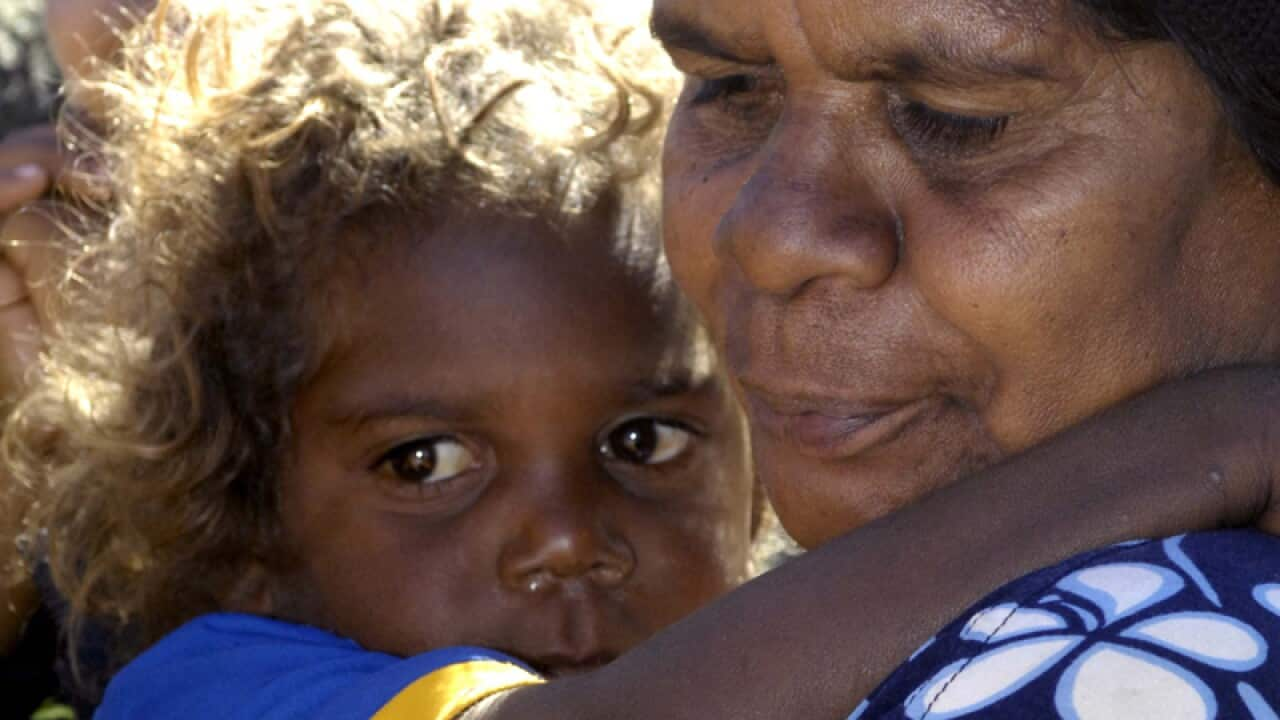The latest guide to assist health practitioners working with Aboriginal and Torres Strait Islander peoples will look at five new areas of concern.
Fetal alcohol spectrum disorder (FASD), preventing child maltreatment, family abuse and violence, and lung cancer were added to the third in response to requests from health professionals and community.
The National Aboriginal Community Controlled Health Organisation (NACCHO) says the guide will help professionals deliver preventative health care that best meets the needs of First Nations people.
"This publication will help Aboriginal families and individuals across the country receive comprehensive primary health care," NACCHO Chair John Singer said.
Mr Singer said the guide will not only help Indigenous patients and health professionals but also non-Indigenous practitioners.
"It will also be vitally important for clinicians to explain, listen and be culturally sensitive when Aboriginal people visit a GP's clinic, and this guide provides a key to making our peoples feel safe, comfortable and heard in a culturally appropriate environment," he said.
The launch follows an earlier controversy with some conservative media outlets falsely claiming non-Indigenous nurses and midwives must acknowledge their 'white privilege' before treating Aboriginal patients.
Indigenous groups and the Nursing and Midwifery Board have since rejected the claims.
Mr Singer says the guide will help to dispel uncertainties.
"The reason why we have community-controlled health organisations was because, in the past, Aboriginal people didn't have access to a lot of medical services; they faced racism within medical services," he told NITV News.
He says it's important attitudes change.
"Not just in the way we deliver it as Aboriginal people within an Aboriginal community controlled setting, but also educating and making sure that those other GPs and other areas of the health system are sensitve but also understand what are culturally appropriate ways to deliver services and engage with our peoples," he said.
Launched in conjunction with the Royal Australian College of General Practitioners in Canberra on Wednesday, the new resource aims to play a critical role in preventative care.
RACGP Chair of Aboriginal and Torres Strait Islander Health and Associate Professor of Medicine and Public Health at the University of Newcastle, Peter O'Mara, says it will empower future health professionals.
"It's a great tool for learning and I will be recommending my students be looking at this as well and taking that information on," he said. "It's going to empower them in many ways more than their colleagues in the hospital system."
Mr O'Mara says the resource is a huge positive for Aboriginal health.
"We're normally sitting there day to day in our communities, our loved ones and families are passing away and suffering traumas they shouldn't suffer, it's nice to be a part of something positive," he said.
Indigenous Health Minister Ken Wyatt says prevention is always better than cure.
"The national guideline maximises the opportunities at every clinic visit to prevent disease and find it early," he said.
Mr Wyatt says the guide will help increase vigilance over previously undiagnosed conditions "by promoting early intervention and by supporting a broader social change to help individuals and families improve their wellbeing."
The launch of the guideline coincides with the release of a new publication from Cancer Australia to help reduce the impact of gynaecological cancers within Indigenous women.
Gynaecological Cancers: a Handbook for Aboriginal and Torres Strait Islander Health Workers and Health Practitioners promotes risk reduction, cervical cancer screening, awareness of symptoms, early detection and appropriate and timely referral and treatment.
It deals with cervical, endometrial and ovarian cancers. According to the publication, Aboriginal and Torres Strait Islander women have a different pattern of gynaecological cancer incidence and mortality compared to non-Indigenous women.
First Nations women in Australia are 2.5 times more likely to be diagnosed with cervical cancer, and 3.8 times more likely to die from it. They are also 2.8 times more likely to die from endometrial cancer.
Cancer Australia CEO, Dr Helen Zorbas, said that Aboriginal and Torres Strait Islander Health Workers play a vital role in the healthcare of Indigenous communities and are critical to better cancer outcomes.
“Gynaecological cancers: a handbook for Aboriginal and Torres Strait Islander Health Workers has been developed with input from key Indigenous health organisations and experts.
“The Handbook guides Health Workers in addressing misconceptions about gynaecological cancers, suggests ways to encourage women to reduce their risk, including undertaking cervical cancer screening and HPV vaccination, and provides methods for managing embarrassing or sensitive topics,” said Dr Zorbas.












